“It’s really important to teach people how to get food, how to grow it, how to pick it, how to prepare it and what’s safe to eat.” ― Arthur Potts Dawson
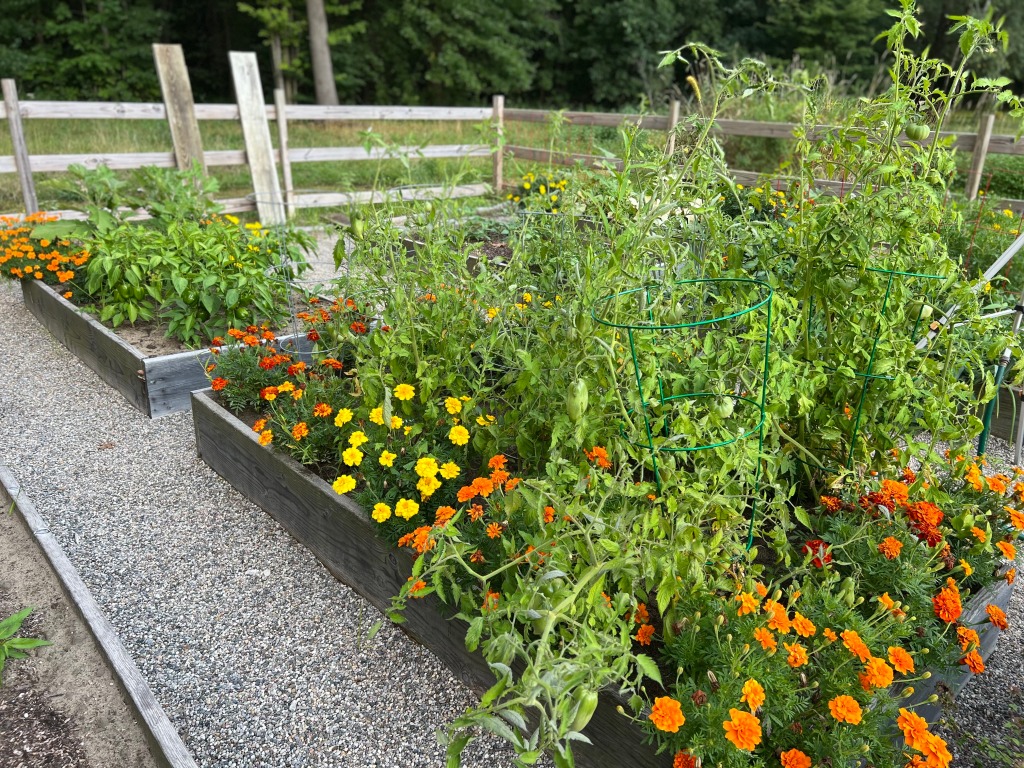
What is Companion Planting?
Companion planting is an age old practice used to deter specific insects from harming your flower & vegetable plants. It involves working with nature by attracting beneficial insects into your garden with certain types of plants, while planting specific combination of others to deter the bad bugs. This encourages optimal growth and a healthy environment for humans, animals, & insects.
Beneficial insects such as ladybugs, praying mantis, and lacewings to name just a few can naturally be attracted with specific plants both in your vegetable & flower gardens. Adding herbs and flowers assists with this process. They help deter unwanted bad bugs without using synthetic and poisonous pesticides & herbicides.
These beneficial insects will prey on the bad ones acting as natural predators, thereby eliminating many of them in a natural process. Eating them!
Watch me as I discuss Companion Planting and it’s benefits~ and be sure to LIKE & SUBSCRIBE so you don’t miss a beat!
If you missed episodes 1, 2, 3, and/or 4 of my Gardening 101 series, just click the links!
Plant Companions
Let’s first look at some some easy plant companions for the home gardener.
There are several plants that grow well together as there are some that don’t. Throughout history the 3 Sisters have been a popular choice. It is also a commonly known companion planting trio most gardeners are aware of. The 3 Sisters are corn, beans and squash or pumpkins. They offer each other several benefits including:
- The corn provides a means for the beans to grow up. The stalks act as a trellis.
- The corn leeches nitrogen out of the soil, where the beans or any legume crap replace it back into the soil. This is a standard crop rotation for crop farmers.
- The vines of the squash or pumpkin act as a weed barrier growing under and around the beans & corn, while also aiding in maintaining moisture.
A few of the Good Guys!
Some of My Favorite Companions Include….
Grow tomatoes, carrots, basil, any of the alliums~ garlic, onion, chives, etc.~ nasturtiums, & marigolds together as they are all beneficial to one another.
•They work in unison attracting beneficial insects while naturally deterring harmful pests.
•Allium crops aid in repelling spider mites.
•Basil, marigolds and nasturtiums repel the tomato hornworm and aphids.
‘Carrots deter nematodes
Incompatible Plants
It’s best to avoid placing these plants near each other in a garden, especially if you are growing in raised beds. If you have a regular garden, then simply plant them on opposite sides of your plot.
•Any member of the legume family, so beans, peas, etc., do not grow well with any member of the allium family. This includes any type of onion or garlic. Regular or garlic chives would also be included here.
You may be wondering why. Well, onions release a chemical into the soil that hinders the legumes growth. You will get a very weak crop if these are planted near each other, especially in a raised bed!
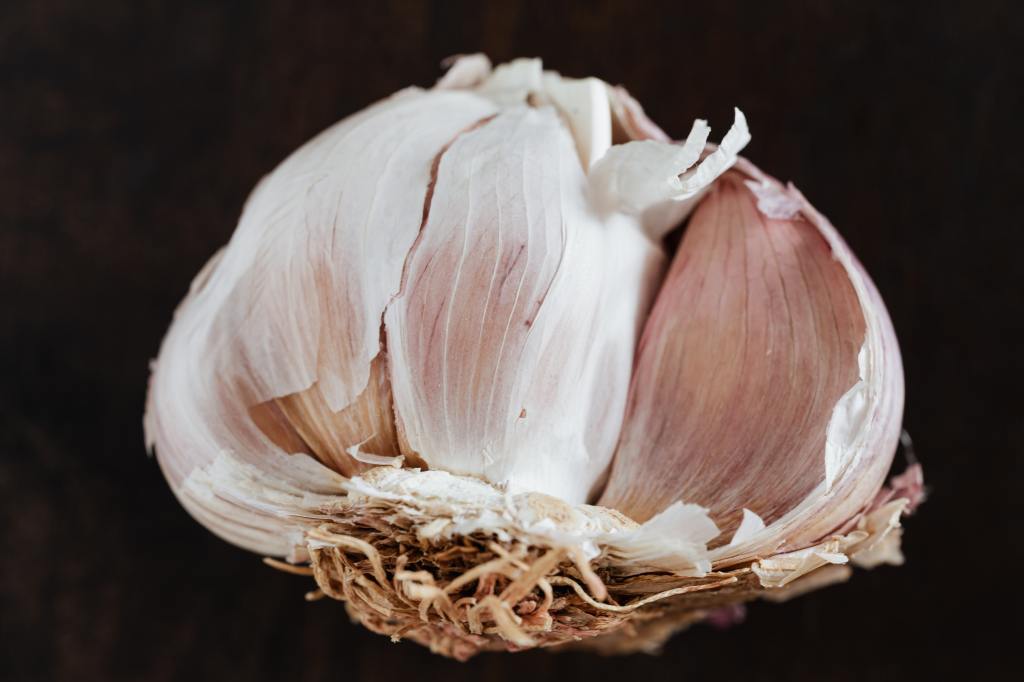
What are Some of the Benefits with Companion Planting Techniques
•Alleviates the use of harmful chemical herbicides and pesticides.
•Allows you the grower to know what you are taking into your bodies.
•Allows you to create a balanced, healthy ecosystem for pollinators, such as honey bees, butterflies and other insects.
•By attracting ‘beneficial insects, like praying mantis, you are creating an environment that will naturally fight the ‘bad bugs.’

Companion planting is a really in depth topic that blogging or producing a YouTube video doesn’t give appropriate time to. I highly recommend purchasing “Carrots Love Tomatoes”, by Louise Riotte. I use this book every year as a resource, and I’m sure you will as well.
Remember that if you are using raised beds to garden in, following these simple, yet important rules will alleviate a lot of disappointments and poor crop yield.
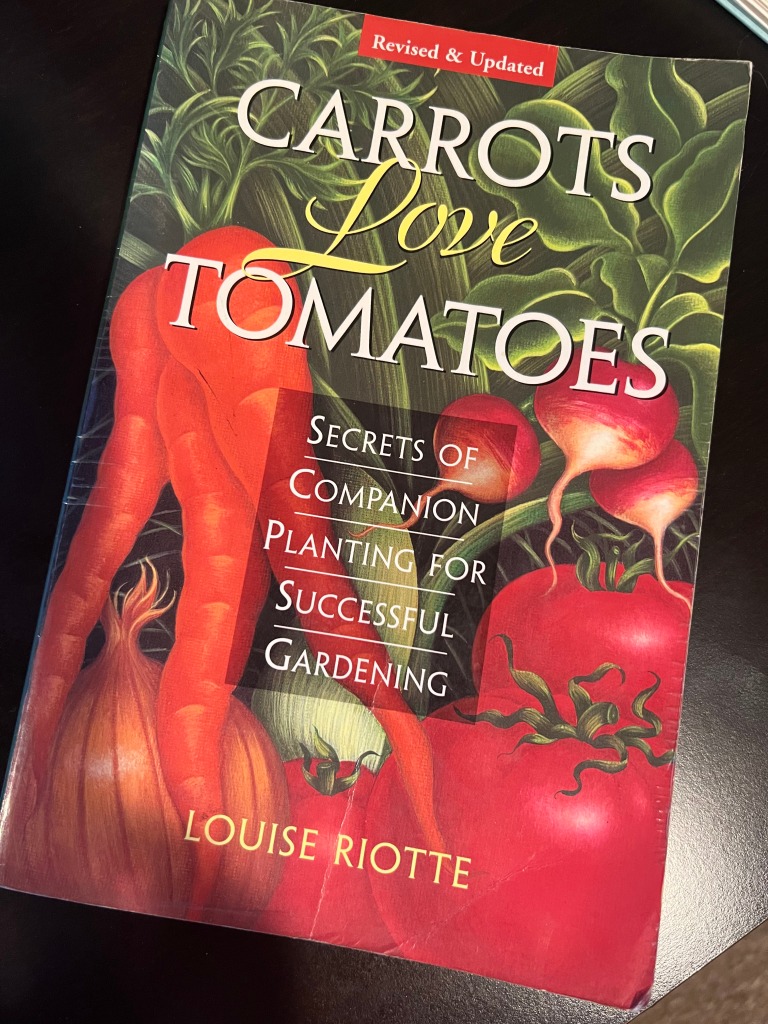
Here is a concise list of companion plants along with which insects they attract or repel.
*Basil will repel flies & mosquitoes
*Castor bean will keep moles and plant lice away
*Plant hyssop and it will deter the cabbage moth.
*When planted near rosebushes, lavender drives away aphids.
*Sage, hyssop and thyme deter caterpillars.
*French marigolds may discourage nematodes, Mexican bean beetles and white flies
*Nasturtium also helps fight against aphids, squash bugs, striped cucumber/ pumpkin beetle and woolly aphids.
*Pennyroyal gets ants to stay away.
*Add a beautiful edge of petunias in your garden and the beetles will keep away.
*Peppermint isn’t only good to make tea with, but repels the white cabbage moth. I have a whole patch of it in my kitchen garden.
*Rosemary and Sage deter cabbage moth, bean beetles, carrot flies and ticks.
*Santolina keeps plant lice away.
This is such a small list of possibilities but you can get lots more ideas in “Carrot’s Love Tomatoes” by Louise Riotte. This book is open most of the year for me!
A Companionate Herbal for the Organic Garden~ This list was adapted from The Rodale Herb Book; How to Use, Grow, and Buy Nature’s Miracle Plants; published by Rodale Press, Inc. 1974, pg.s 268-269.
HERB: COMPANIONS AND EFFECTS:
Basil *Companion to tomatoes; Improves growth and flavor; repels flies and mosquitoes.
Bee Balm *Companion to tomatoes; improves growth and flavor
Borage *Companion to tomatoes, squash and strawberries; deters tomato worm; improves flavor &
growth.
Caraway *Plant here and there; loosens soil.
Chamomile *Companion to radishes; improves growth & flavor.
Chervil *Companion to cabbages & onions; improves growth & flavor.
Chives *Companion to carrots; improves growth & flavor.
Dill *Companion to cabbage, improves growth & flavor; dislikes carrots
Fennel *Plant away from gardens. Most plants dislike it.
Garlic *Plant near roses and raspberries, improves growth & health; deters Japanese beetle
Horseradish *Plant at corners of potato patch to deter potato bug.
Hyssop *Deters cabbage moth; companion to cabbage & grapes; Keep away from radishes.
Lovage *Improves flavor and health of plants if planted here and there.
Marigold *The workhorse of the pest deterrents. Plant throughout the garden: discourages Mexican bean beetles, nematodes, and other insects.
Mint *companion to cabbage & tomatoes; improves health & flavor; deters white cabbage moth.
Marjoram *Here and there in gard3en; improves flavors.
Nasturtium *Companion to radishes, cabbage & cucurbits; plant under fruit trees. Deters aphids,
squash bugs, striped pumpkin beetles. Improves growth and flavor.
Pot Marigold *companion to tomatoes, but plant elsewhere in garden too. Deters asparagus beetle,
tomato worm and general garden pests.
Peppermint *Planted among cabbages, it repels the white cabbage butterfly.
Rosemary *Companion to cabbage, bean, carrots & sage; deters cabbage moth, bean beetles & carrot fly
Rue *Keep it far away from sweet basil; plant near roses and raspberries; deters Japanese beetle.
Sage *Plant with rosemary, cabbage & carrots; keep away from cucumbers; deters cabbage moth
& carrot fly.
Summer Savory *Plant with beans and onions; improves growth and flavor; deters bean beetles.
Tansy *Plant under fruit trees; companion to roses & raspberries; deters flying insects,
Japanese beetle, striped cucumber beetles, squash bugs and ants.
Tarragon *Good throughout the garden.
Thyme *Here and there in garden. It deters cabbage worm.
I certainly hope you are encouraged to grow your own food. Even if you start with only two or three of these things, that’s a great start!
Don’t be dismayed if you don’t have a yard to garden in, container gardening is a great alternative.
If you enjoyed this blog , please LIKE, Follow, Share & leave me a comment! I love your feedback!
If you aren’t following me on Facebook or Instagram, go on over & give a LIKE & Follow me for daily tips & tricks for your home & garden!
Happy Day,
Jean
Copyright Policy
All text and images on this site are copyright of For Dragonflies And Me. Unless otherwise noted, you may not use this content.


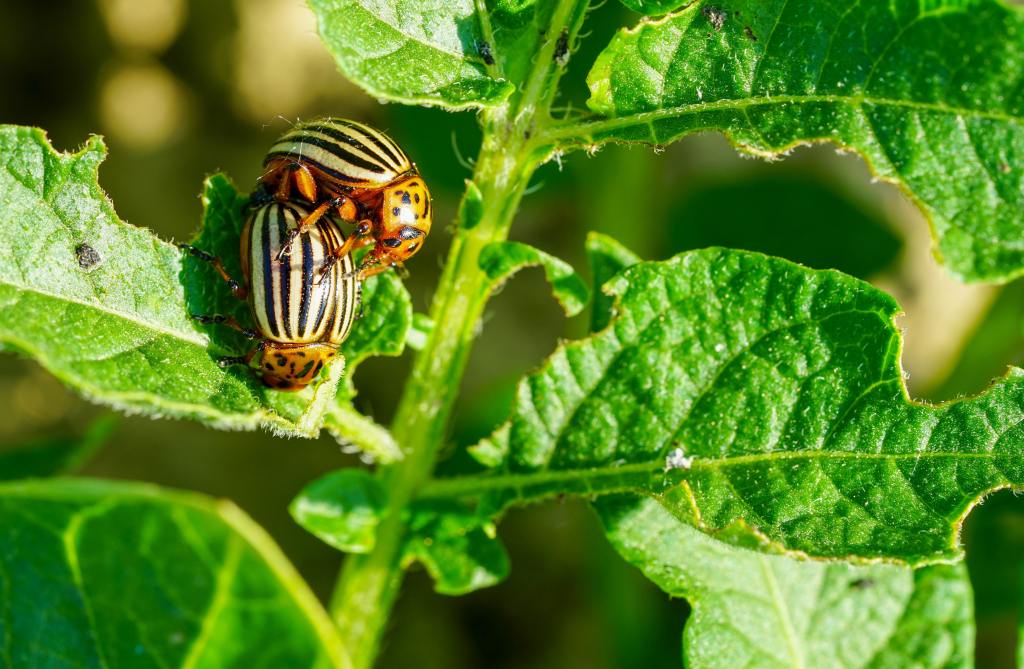


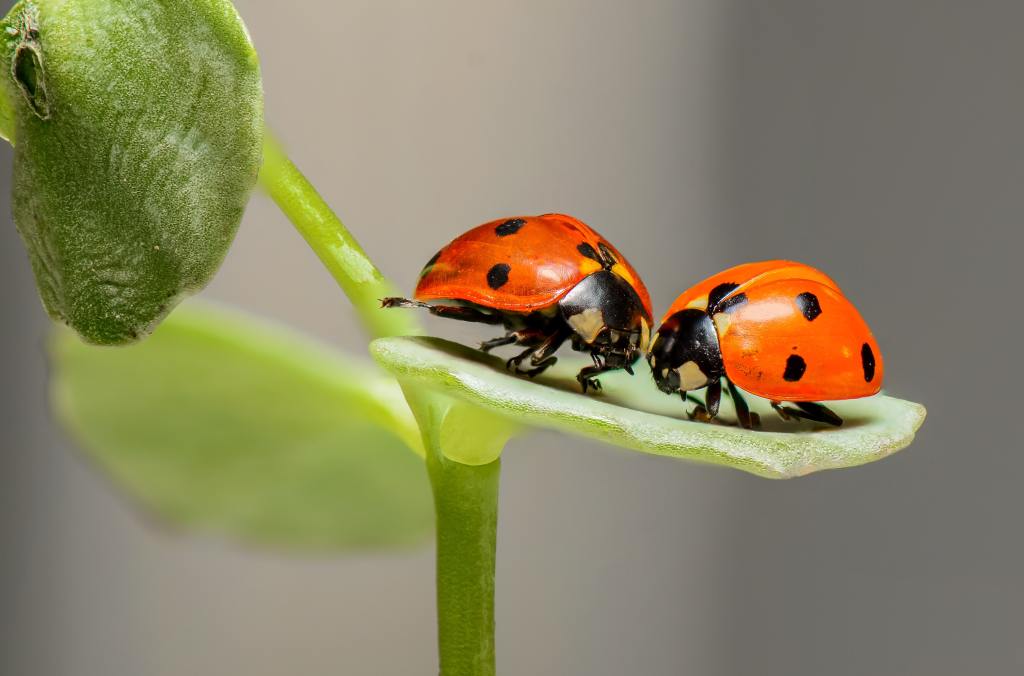
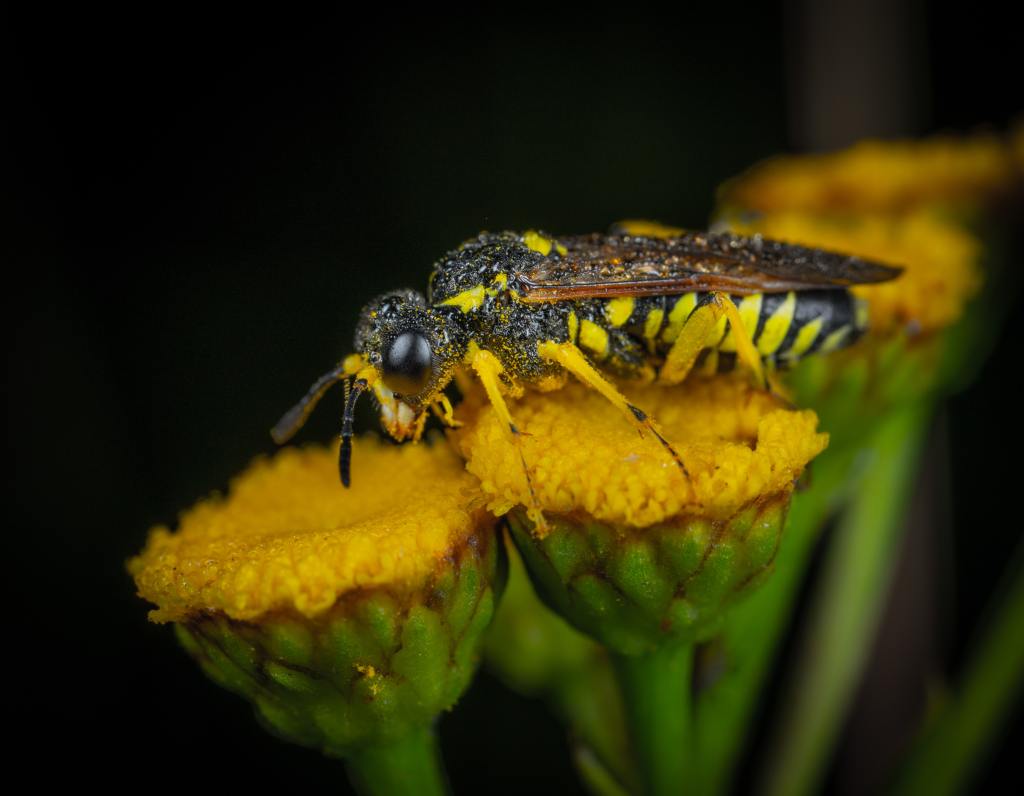

Pingback: Gardening 101 Day 12: Part 2~ Easy 5 Step How-to Plan Your Spring Garden – For Dragonflies And Me
Pingback: Gardening 101 ~ 10 Hardy Vegetables to Plant in Zones 4 & 5 in April~ PLUS Bonus Garden Tips! – For Dragonflies And Me
Pingback: Gardening 101~ From Seed to Sprout: Teaching Kids the Importance of Growing Their Own Food – For Dragonflies And Me
Pingback: Gardening 101~ 10 Organic Methods to Eliminate Tomato Worms & Keep Your Garden Healthy! – For Dragonflies And Me
Pingback: Gardening 101~ 10 Organic Methods to Get Rid of Tomato Worms & Keep Your Garden Healthy! - New World videos
Pingback: Gardening 101~ The Ultimate Guide to Using Neem Oil for Organic Pest Management: Pros, Cons, and Tips – For Dragonflies And Me
Pingback: Gardening 101~ From Ladybugs to Lacewings: How to Attract the Right Beneficial Insects to Your Garden for Pest Control – For Dragonflies And Me